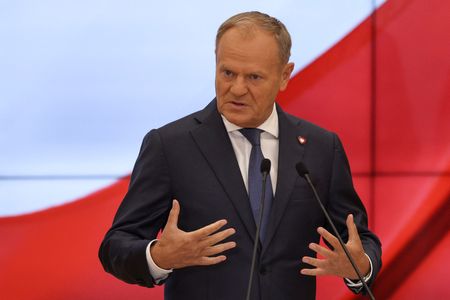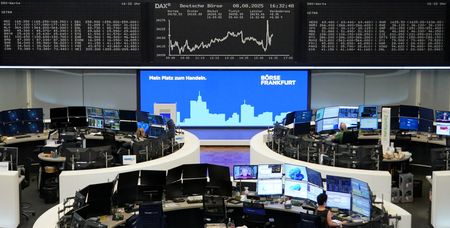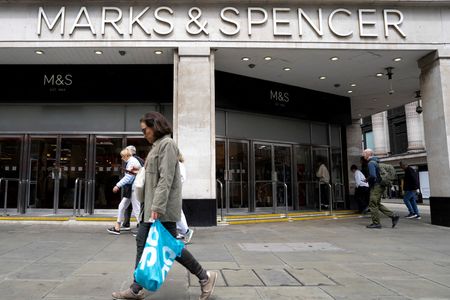By David Milliken
LONDON (Reuters) -Hiring intentions by British businesses fell to their weakest since the COVID-19 pandemic and recruiters said starting pay was rising at the slowest pace in over four years, according to surveys on Monday which add to signs of a weakening jobs market.
With the Bank of England watching the jobs market closely, the Chartered Institute of Personnel and Development said only 57% of private sector employers planned to recruit staff over the next three months, the lowest since the start of 2021 though only slightly down from 58% in the last quarterly survey.
The professional body for the human resources sector said higher employer social security charges introduced by finance minister Rachel Reeves and an increased minimum wage were hurting jobs, particularly in hospitality and social care.
Planned changes to employment law which are likely to make it harder to sack employees in their first two years in a job were also making businesses more reticent to hire younger, less experienced staff, CIPD economist James Cockett said.
Other business surveys have shown similar concerns, as well as broader headwinds from weak domestic demand and residual uncertainty for some exporters over U.S. trade tariffs.
Official data due on Tuesday is likely to show the jobless rate in the three months to June held at 4.7%, close to a four-year high, according to a Reuters poll of economists who will also be watching to see if pay growth slows as the BoE expects.
Four of nine BoE policymakers opposed its quarter-point interest rate cut to 4% last week and they are likely to need further convincing that domestic inflation pressures are easing.
CIPD members expected to raise pay by a median 3% over the coming year, unchanged from the previous five quarters.
Separately on Monday, the Recruitment and Employment Confederation said growth in starting salaries in July was the weakest since March 2021 while pay for temporary staff grew by the least in five months.
“Economic uncertainty, the complexities of AI adoption and global headwinds are all weighing on business planning,” said Jon Holt, group chief executive at accountancy firm KPMG which sponsors the REC survey.
REC said higher payroll costs and weak confidence contributed to a steep fall in permanent appointments in July.
(Reporting by David MillikenEditing by William Schomberg)











